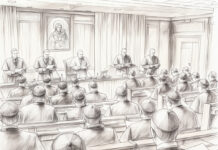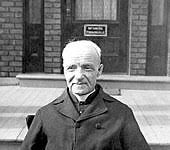A local on-line magazine seems to have quoted me in a way that may be misconstrued: So for those of you in the local area, and even those further afield, here is what I wrote a couple of weeks ago about the events on Capitol Hill:
Ah, yes, great is the power of steady misrepresentation, not least via the warm and comforting glow of what comes through the screen, now almost unilaterally controlled by an oligarchy of billionaires tied up with the Democrats, showing us only what it wants to show, and saying only what it wants us to believe, soothingly and reassuringly, but then more menacingly as we resist, and as other competing sources are shut down, or, as the saying now goes, ‘de-platformed’. As Pope Benedict warned in another context in his 2006 Regensburg address, if words and honest debate and freedom of expression, and now freedom of assembly, if any recourse to changing the regime and its laws, are more and more verboten, or perceived as such, what recourse do the people have, except violence?
I was following the thought of then-Pope Benedict, as well as Thomas Aquinas, who make the same point.
Here is what I have since added, for clarification:
…even of a metaphorical variety – shouting back and forth, coercive laws dictated with little in the way of rhyme and reason, divisions within communities – instead of rational discourse, sober thought, middle ground and democratic debate.
It seems the bit about ‘violence’ was quoted in bold, as though, perhaps, I was actually advocating such, which I was and am not, and apologies if any construed such. My point was not exhortatory, but rather more philosophical, historical and empirical, that in the past (and present), when people are painted into a box, without a voice, or any recourse, their natural tendency is to resist.
‘Violence’ occurs whenever one is forced to do something they would rather not, contrary to their nature, proclivities, desires, conscience, or all of the above. Aristotle speaks of ‘violent’ motion, when an object is moved outside or against to its ‘natural’ place, or tendency thereto.
Such violence need not be physical, and often may be manifested as psychological, social, cultural coercion. Saint Thomas says that laws that are unhinged from reason are a type of ‘violence’, that the people experience only as coercive (as in all totalitarian and dictatorial regimes).
And Pope Benedict was declaring that any society or culture that forbids rational discourse – hence, acting purely on what they perceive to be the ‘will of God’, or the ‘will of the leader’ – by its very nature act will be ‘violent’, and, in accord with Newton’s Third Law, will predispose to violence in return. Those who sow the wind, will reap the whirlwind.
We should strive to short-circuit this descent with peace, and I am all for peace, which, as the Catechism says, is not simply the ‘absence of war’ or conflict, a mutual stand-off, but rather, as Augustine put it, the ‘tranquility of order’, in a give-and-take of striving to understand and sympathize with those who disagree. This is only possible when society is founded on shared objective truths, especially the truths of the moral and transcendent order, the dignity of Man, his freedom, the right to life and freedom of conscience, freedom of speech, all with fitting responsibility, due process, and, yes, dialogue and debate, in friendship founded on charity.
Only so will we journey together towards the truth.
Pax ad omnes +










